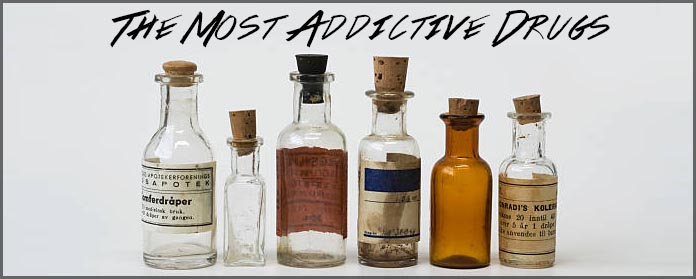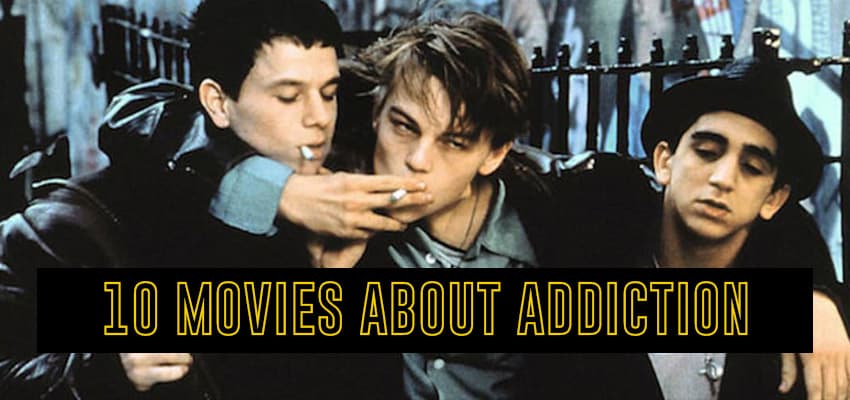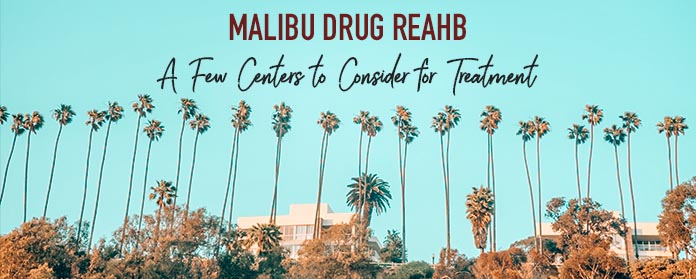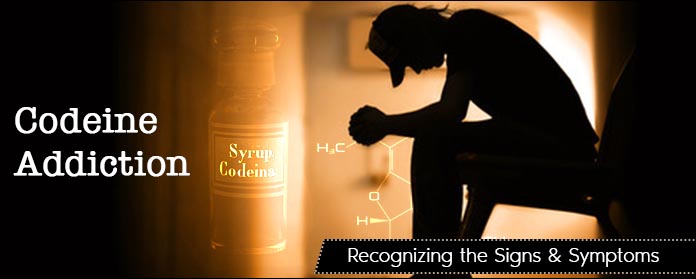The terminologies used to describe the most addictive drugs are often muddled, with one word being used to describe many drugs and few people understanding the differences.
A few of these words are opiate, opioid, and narcotic. This article will discuss a few of the most popular narcotics to watch out for. A narcotic is often described as a substance that can become addictive.
Opiates and opioids can be classified as narcotics, but just branches of the “narcotic tree.” Many of the drugs listed in this article will be classified as opioids. Many of the people addicted to these substances have been prescribed them by a doctor, making this list especially important if you have the need for a prescription.
Most Addictive Drugs
Some of the items on the list will be illegal drugs as well. In any case, they are used to ease some form of physical or mental pain– be sure to stay away from the illegal drugs on this list and use the legal ones with extreme caution.
If you’re in need of help identifying a drug name that you’ve heard from someone close to you, click here to learn the street names of drugs.
Heroin
We’ll start with a heavy-hitter that most people are familiar with. Heroin is an illegal opiate that is listed as a schedule 1 controlled substance.
Despite what some people will say, there are no clear medical benefits to using heroin. There are, however, effects that temporarily ease some conditions. Heroin is known to dull all senses, impair cognition, sedate the user, and cause the central nervous system to act dramatically different.
The experience of heroin is extremely powerful. It’s been known to derail lives, change personalities, and cause death in many cases.
Fentanyl
Fentanyl is a synthetic drug that has properties similar to morphine. It can be 100 times more powerful than morphine in some cases, though.
It’s an extremely potent drug that is used to alleviate and control pain in patients who have undergone surgery. It can also be used to benefit those people who are not as affected by opioids.
Because it is so powerful, it has hit the streets heavily. It’s typically laced in heroin or bought directly.
Oxycodone
Oxycodone is the powerful drug that is most commonly referred to as OxyContin. It’s a pain relief pill that is used to treat adults.
It’s highly addictive, and many of those who are prescribed to it develop a habit of using. This, paired with the fact that oxycodone is among the three opioids most likely to cause overdose, makes the drug extremely dangerous.
Opium
Opium is an ancient depressant that has existed as a human drug for thousands of years. It serves to slow down your motor function and sedate the body, and looks dark brown and sticky when it is in drug form.
It’s typically smoked, but it can be ingested in a number of ways. You can inject it, eat it, and drink it as well. If you eat or inject opium, you will be put at a greater risk of experiencing an overdose.
Excessive use of overdose has been known to cause an overdose. Additional side effects include poor bowel function, dry and irritable nasal cavities, and memory loss.
Codeine
Codeine is used as a pain reliever in addition to being commonly used as a cough medicine.
Its sedative properties make it a desirable street drug, and its use has been popularized by a number of celebrities and musicians who use it regularly. Codeine causes the user to experience haziness, numbness, and lack of ability to control motor function in some cases.
Codeine also holds the possibility of overdose.
Hydrocodone
Hydrocodone is an extremely common drug that is used to treat pain. It’s one of the drugs most responsible for overdose in the opioid epidemic.
It’s highly addictive and can be ingested in a number of ways. The most common form is the pill, while many people smoke, snort, or inject it as well. This is a drug that has been normalized in high school circles and groups of young adults.
Most people know hydrocodone as Vicodin, which is its brand name.
Methadone
Methadone is a drug commonly used to treat pain. It might be more common for the drug to be used with people who are recovering from an opioid addiction. It serves as a way for people to get off of their drug of choice without as much pain of withdrawal.
That being said, methadone is addictive by itself. So, while people are trying to get clean off of heroin and meth, methadone has the potential to become yet another drug that they are addicted to.
Morphine
Morphine is most commonly used in pain management and has uses for those who are entering surgery. It is sourced from a manipulation of the opium poppy, and many variations of morphine have been created and sold as street drugs.
Like the other opiates on our list, morphine, too, holds the potential for overdose. Many people abuse the drug as well, so it is one to be aware of. If you’re prescribed morphine, be careful to take the medication exactly as prescribed.
Carfentanil
This drug is possibly the most potent on our list. It was originally created to be used as an elephant tranquilizer.
Carfentanil is 10,000 times more powerful than drugs such as morphine. It is created to look similar to other street drugs but can be lethal in doses that those drugs would be tolerable in.
Because of this, people are overdosing at high rates because they are unaware of the drug they’re using. Needless to say, it is something that is extremely dangerous and should be avoided at all costs.
Hydromorphone
Hydromorphone is a prescription drug that is frequently granted by less than reputable pharmacists. The street value is high, meaning that some doctors pharmacists are turning a profit by prescribing it.
It can be injected, snorted, swallowed, and smoked. It’s an opioid that holds a high chance of overdose.
In Need of Help?
Sometimes we fall into the trap of narcotics. It’s difficult not to sometimes, seeing as we are given these drugs by our trusted doctors.
If you or someone you love has been affected by the overuse of narcotics, we have information that can help you understand and get through this difficult time. Visit our site to learn more.






